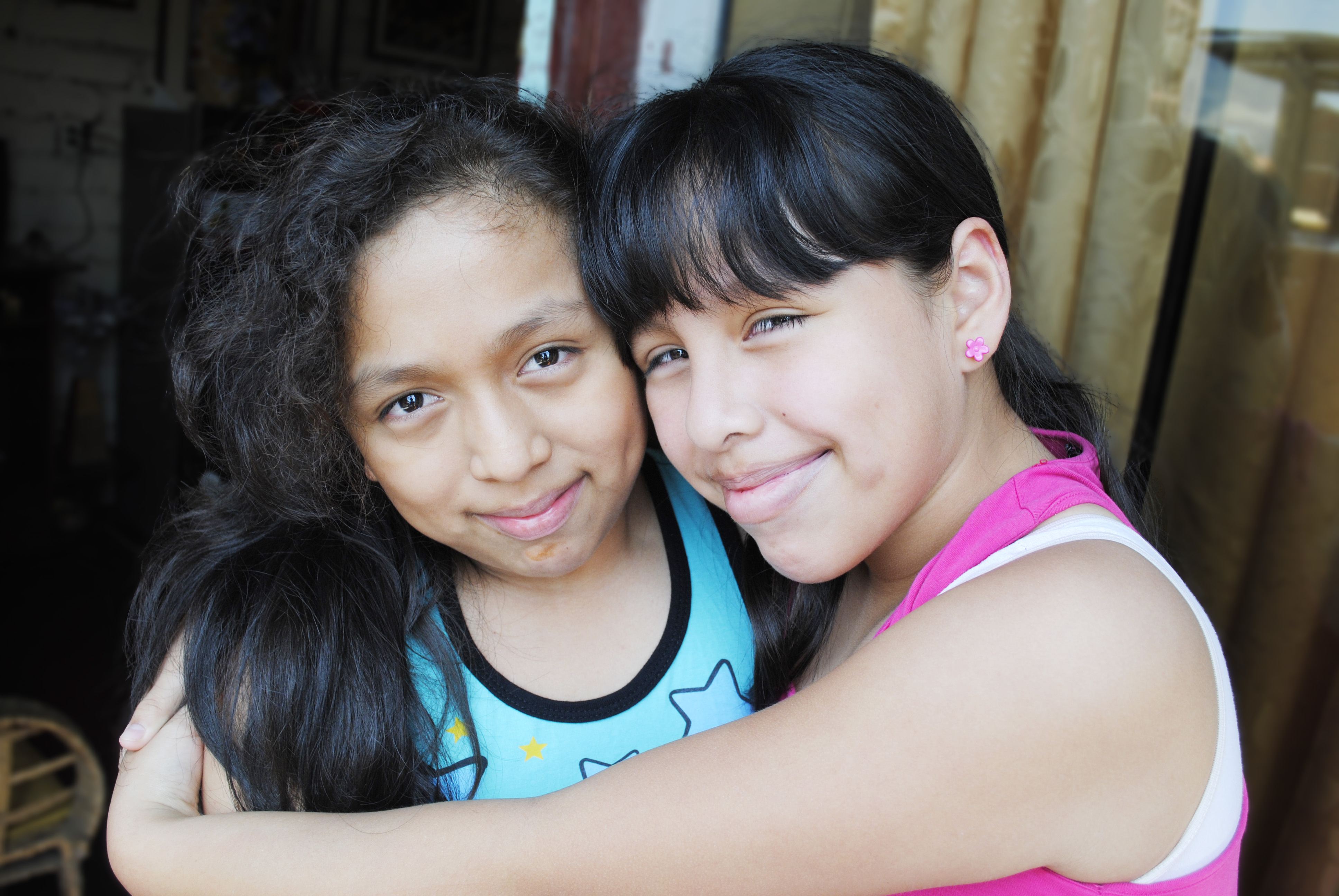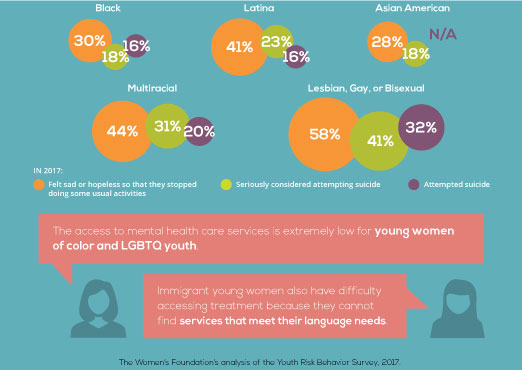Centering the voices and lived experiences of young women of color in identifying challenges and solutions to improve their lives is critical to developing effective interventions to bring about change. Last year, as part of the Young Women’s Initiative, The Women’s Foundation facilitated conversations and conducted interviews with young women of color across DC to learn about their assets and potential, and to understand what challenges inhibit their success.
In these conversations, participants acknowledged the need for prioritizing affordable and accessible mental health and counseling services in DC. The urgency of this unmet need came up in nearly every topic The Women’s Foundation explored. Whether discussing bullying at school, the aftermath of violence, or involvement with the juvenile justice and foster care systems, young women of color talked about mental health supports as an option they need to start a healing journey and move forward.
Mental health supports are critical components of navigating trauma, but the lack of economic resources, narrow provider networks, and high out-of-pocket costs, as well as stigma around mental health issues prevent young women of color from seeking help.
Data from the Youth Risk Behavior Survey show that in DC young women of color are not receiving the support they need. A high percent of young women of color attending high school, in particular Latinas, experience mental health disorders that prevent them from doing some of their usual activities. In 2017, one out of every ten Latinas attempted suicide, about a quarter seriously considered attempting suicide, and close to half of all interviewed said they felt sad or hopeless.
During May, organizations across the country are rising awareness about mental health, and advocating for policies that support people with mental illnesses and their families. Half of all lifetime mental health conditions begin by age 14 and about 75 percent by age 24. Early interventions for young women of color are crucial to improving outcomes and increasing the promise of recovery.
Some recommendations to facilitate accessible and affordable mental health services for young women of color in the District of Columbia include:
For school systems:
- Expand the number of youth-friendly, gender-responsive, trauma-Informed, culturally and linguistically competent counselors available to young women of color all the way from elementary school to college.
For community and youth-serving organizations:
- Offer free counseling services for young women of color who cannot afford them.
- Facilitate nonjudgmental and nondiscriminatory peer support among young women of color.
For funders:
- Invest in cutting-edge research to better understand the mental health needs of young women of color in DC.
For government:
- Increase and protect funding to provide mental health support and treatment to youth in foster care and the juvenile justice system.
For legislators and policymakers:
- Remove barriers to access and participation of mental health services.
To read more recommendations and to learn more about ways to support young women of color in DC, click here.
Claudia Williams is Program Officer at Washington Area Women’s Foundation where she contributes to crafting and executing program strategy and manages the Young Women’s Initiative of Washington, DC.



